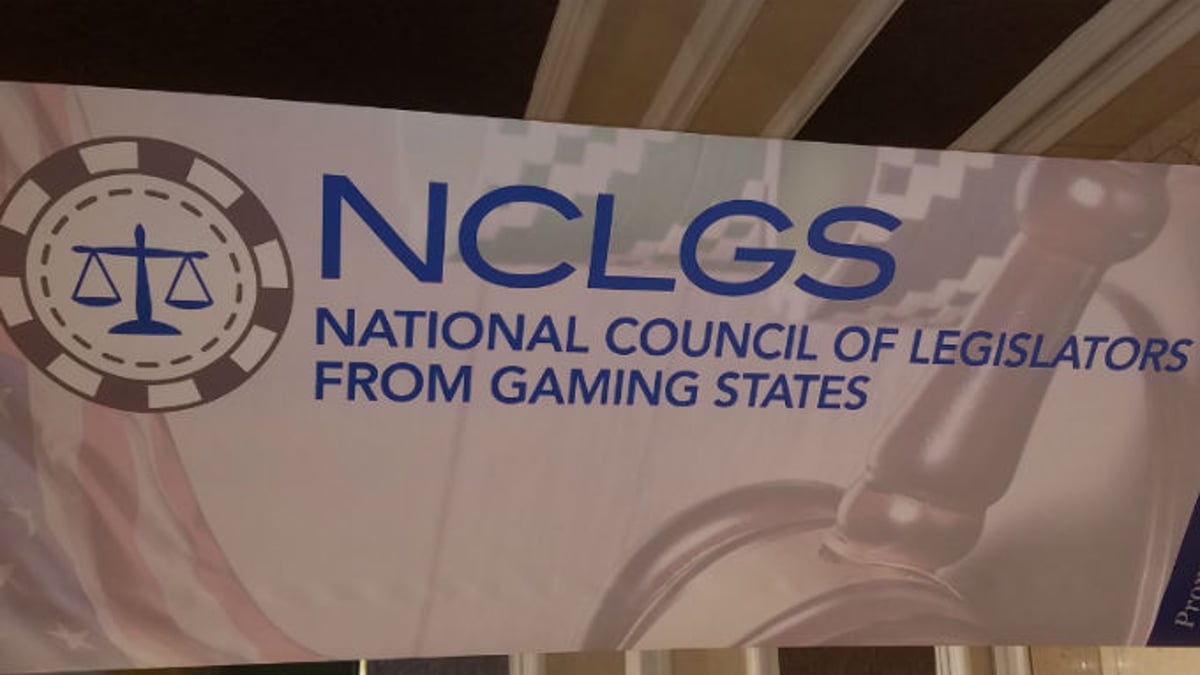Asher, Christie Implore Legislators to Hold Firm on Fees

NEW ORLEANS – An animated William Hill CEO Joe Asher urged legislators to resist what he called the “monopoly pricing power” potentially exerted by professional sports leagues to exact money from states.
”They're smart guys and articulate guys and they're going to keep trying,“ he said of the National Football League, National Basketball Association, National Hockey League and Major League Baseball on the first day of the National Council of Legislators from Gaming States summit.
Asher, whose company is the largest sportsbook operator in the United States noted that leagues that had advocated for so-called “integrity” fees even before the Professional and Amateur Sports Protection Act of 1992 was nullified by the Supreme Court in May had changed tack to focus on official data after being rebuffed.
Asher’s sentiments were widely held by the group at large, and not surprisingly, by the political figure whose tilt with the NFL helped making legal sports betting one of the more pressing issues in American sports.
Check out our William Hill betting review to learn about the sites features, game variety and special bonus offers.Chris Christie Delivers Message in Keynote
Conference keynote speaker and former New Jersey governor Chris Christie, whose legal challenge began the process that eventually led to PASPA’s downfall, lambasted the National Football League’s “arrogance” in seeking integrity fees after his law to allow sports betting in New Jersey would have offered a fee before seven years of litigation by the league.
He implored legislators to spurn the leagues, adding “Don’t reward bad behavior,” especially since revenue from sports betting does not portend to be a boon for state budgets, he said.
“They don’t need it and given their conduct over the past seven years I’d argue they don’t deserve it,” Christie said.
Monmouth Park unsuccessfully attempted to recoup damages and lost monies from during the state’s legal tussle with pro sports leagues and the NCAA.
The NBA was one of the first to lobby for integrity fees, with commissioner Adam Silver advocating what became a widely cited one-percent tax on handle to assure security issues he claimed would arise with greater legal sports wagering.
When state legislatures in the eight states that legalized and began practicing sports betting in 2018 spurned those wishes, leagues began to rebrand their approach by selling “official” data from league sources to gambling interests that include branding rights.
The NBA and National Hockey League have since entered such agreements with MGM Resorts International. The NBA in November announced sports betting data distribution agreements with Sportradar and Genius Sports.
A draft of a possible federal sports betting bill would require the use of official data provided by leagues.
“No state has adopted this concept of an integrity fee or an integrity tax,” Asher said. “It hasn't existed in the decades there has been sports betting in Nevada, doesn't exist in New Jersey or any of the other states. And I think the reason for that is there's plenty of benefits for them and they should continue to negotiate and achieve those rates in the marketplace, and in the commercial sphere. They don't need to be given legislative handouts, to give them an integrity tax right off the top.”
Fees a ‘Commercial Issue,’ Not About Integrity
Asher called the notion that leagues require integrity fees to insure their games in a regulated market when they never sought such in a black market economy “made up” and “purely a commercial issue.”
He discounted a league contention that differing data on prop bets – he used a theoretical wager on the amounts of assists LeBron James might have in a game – by contending that type of bet was a minimal part of the market.
“People don't bet on how many assists LeBron James had in a game,” he said. “They’re betting on whether the Lakers are going to cover the spread or the Lakers are going to win the game, right? Those things are well known and as the Second Circuit [held], those facts in the public domain.
“If you have to use official data, the leagues can charge whatever they want. You want the results of the Super Bowl, it’ll cost you $5 million, right? So that's really the secret of the official league data requirement. It gives monopoly pricing power. And this pricing power has not existed in the U.S.”
Stay In The Loop With Free Bets, Insider Tips & More!
Live Betting. Sports Promos. Sent Weekly.






